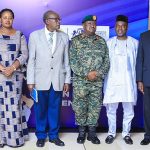
International relations (IR) is both an activity and discipline that helps to understand the politics, nature, scope and systems in a world. The discipline represents the study and interaction of activities/issues that make up the basis of foreign affairs among states and non-state actors in international system for the survival of states in an anarchical world.
The subject continues to debate whether states or individuals should be the focus in international relations. International relations (IR) or international affairs, depending on academic institution, is either a field of political science, an interdisciplinary academic field similar to global studies, or an entirely independent academic discipline in which students take a variety of internationally focused courses in social science and humanities disciplines.
The study of International relations is a theoretical perspective; it attempts to provide a conceptual framework upon which international relations can be analyzed, predicted and explained to make meaning and help in crisis management. The mainstream theories include; idealism and realism. The theories set debate in international relations today. The critical theories used are; liberalism, Marxist, World System theory, modernization, dependency and constructivism among others that help to understand the world around us and separate facts from non-facts.
The applicant for this course must have a minimum of a Bachelor’s degree (second class lower) in any related field or its equivalent, from a recognized institution of higher education. International graduate student applicants whose native language is not English (non-English) are required to submit a score for the Test of English as a Foreign Language with pass.
| COURSE CODE | COURSE NAME |
|---|---|
| YEAR I | SEMESTER I |
| MIR711 | Theories of International Relations |
| MIR712 | International Law |
| MSS712 | Security Studies |
| MIR714 | International Humanitarian Law |
| MIR715 | Democracy and Human Rights |
| YEAR I | SEMESTER II |
| MIR721 | Africa in International Relations |
| MIR722 | Foreign Policy Analysis |
| RSC002 | Research Methodology |
| MIR723 | International Organisations |
| MIR724 | International Political Economy |
| YEAR II | SEMESTER I |
| MIR811 | International Politics of the Environment |
| MIR812 | The Politics of Intervention |
| MIR813 | Complex Emergencies in the Global Arena |
| MIR814 | Theory and Practice of Modern Diplomacy |
| MIR815 | Conflict and Peace Studies |
| YEAR II | SEMESTER II |
| MIR816 | Dissertation |
Enrol today.
August Intake Ongoing!
Read More Fees StructureAs one of the most innovative academic institutions in Uganda, we’re renowned for our accredited programmes, quality education and student-centred way of doing business that creates responsible, educated, employable and entrepreneurial citizens (REEE).
Read More Fees StructureEnrol today.
August Intake Ongoing!
Read More Fees Structure Cavendish University Uganda Bids Heartfelt Farewell to a Visionary Vice Chancellor
Cavendish University Uganda Bids Heartfelt Farewell to a Visionary Vice Chancellor Airtel Uganda Appoints Cavendish University Graduate as New Director of Customer Experience
Airtel Uganda Appoints Cavendish University Graduate as New Director of Customer Experience 2nd Benjamin Mkapa Memorial Lecture
2nd Benjamin Mkapa Memorial Lecture Cavendish University Uganda Contributes towards Busoga Kingdom’s Majestic Wedding
Cavendish University Uganda Contributes towards Busoga Kingdom’s Majestic Wedding